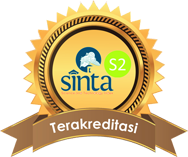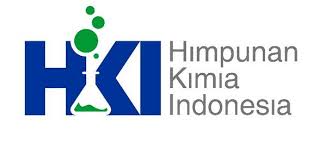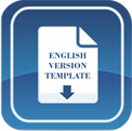Implementation of STEM E-Module with SDGs Principle to Improve Science Literacy and Environment-friendly Attitudes in Terms of Gender
DOI:
https://doi.org/10.15575/jtk.v7i1.16599Keywords:
e-module, environment-friendly attitude, gender, scientific literacyAbstract
Scientific literacy plays an important role in developing education in the 21st century. However, the current student’s scientific literacy ability is relatively low. The millennial generation has been named as a generation that has an environment-friendly attitude. In cases that occur in the field, many students still litter and are not friendly to the environment. There are no teaching materials that develop scientific literacy and environment-friendly attitudes in implementing STEM (Science, Technology, Engineering, and Mathematics) with the principles of Sustainable Development Goals (SDGs). This research aims to produce a STEM e-module with the principles of SDGs to improve scientific literacy and environment-friendly attitudes of 11th grade students regarding gender that is valid, practical, and effective. This research is development research (R&D) with the Plomp model. The data analysis results show that the STEM e-module with SDGs principle has a good impact on students' scientific literacy skills and environment-friendly attitudes. The developed e-module can also help students practice scientific literacy and improve a better environment-friendly attitude.
References
Andromeda, A., Ellizar, E., Iryani, I., Guspatni, G., & Fitri, L. (2018). Validity and practicality of experiment integrated guided inquiry-based module on topic of colloidal chemistry for senior high school learning. IOP Conference Series: Materials Science and Engineering, 335(1), 012099. https://doi.org/10.1088/1757-899X/335/1/012099
Archer-Bradshaw, R. E. (2014). Demystifying scientific literacy: Charting the path for the 21st century. Journal of Educational and Social Research, 4(3), 165. https://doi.org/10.5901/jesr.2014.v4n3p165
Arnila, R., Purwaningsih, S., & Nehru, N. (2021). Pengembangan e-modul berbasis STEM (Science, Technology, Engineering and Mathematic) pada materi fluida statis dan fluida dinamis menggunakan software Kvisoft Flipbook Maker. Edumaspul: Jurnal Pendidikan, 5(1), 551–556. https://doi.org/10.33487/edumaspul.v5i1.1216
Aswirna, P., & Harahap, K. (2020). The android-based learning media using the Trait Treatment Interaction model as implementation of industrial era 4.0. Journal of Physics: Conference Series, 1594(1), 012024. https:// doi:10.1088/1742-6596/1594/1/012024
Aswirna, P., & Ritonga, A. (2020). The development of discovery learning-based e-book teaching e-book based on Kvisoft Flipbook Maker on science literation. Hunafa: Jurnal Studia Islamika, 17(2), 47–79. https://doi.org/10.24239/jsi.v17i2.590.47-79
Aswirna, P., Sabri, A., & Tusa’diah, H. (2020). Development of interactive module based on Trait Treatment Interaction (TTI) using Adobe Fash on critical thinking skills of students. International Conference Fakultas Tarbiyah dan Keguruan Universitas Islam Negeri Imam Bonjol Padang, 192–203. https://doi.org/10.32698/icftk422
Auditor, E., & Naval, D. J. (2014). Development and validation of tenth grade physics modules based on selected least mastered competencies. International Journal of Education and Research, 2(12), 145–152. Retrieved from http://www.ijern.com/journal/2014/December-2014/14.pdf
Bauer, J.-R., & Booth, A. E. (2019). Exploring potential cognitive foundations of scientific literacy in preschoolers: Causal reasoning and executive function. Early Childhood Research Quarterly, 46, 275–284. https://psycnet.apa.org/doi/10.1016/j.ecresq.2018.09.007
Coscieme, L., Mortensen, L. F., Anderson, S., Ward, J., Donohue, I., & Sutton, P. C. (2020). Going beyond gross domestic product as an indicator to bring coherence to the sustainable development goals. Journal of Cleaner Production, 248, 119232. https://doi.org/10.1016/j.jclepro.2019.119232
Dragoş, V., & Mih, V. (2015). Scientific literacy in school. Procedia - Social and Behavioral Sciences, 209, 167–172. https://doi.org/10.1016/j.sbspro.2015.11.273
Egon, E., Ismet, I., & Akhsan, H. (2018). Pengembangan handout mata kuliah termodinamika berbasis STEM untuk mahasiswa program studi Pendidikan Fisika [Unpublished Thesis]. Universitas Sriwijaya. Retrieved from http://repository.unsri.ac.id/id/eprint/12958
Emda, A. (2011). Pemanfaatan media dalam pembelajaran biologi di sekolah. JURNAL ILMIAH DIDAKTIKA: Media Ilmiah Pendidikan dan Pengajaran, 12(1), 149–162. https://doi.org/10.22373/jid.v12i1.444
Fahmi, R., Aswirna, P., Amelia, R., & Nurhasnah, N. (2021). Pengembangan e-learning menggunakan model inquiry terbimbing berbantuan aplikasi Edmodo terhadap keterampilan abad 21 peserta didik. Natural Science: Jurnal Penelitian Bidang IPA Dan Pendidikan IPA, 7(1), 62–74. https://doi.org/10.15548/nsc.v7i1.2472
Fonda, A., & Sumargiyani, S. (2018). The developing math electronic module with scientific approach using Kvisoft Flipbook Maker Pro for XI grade of senior high school students. Infinity Journal, 7(2), 109–122. https://doi.org/10.22460/infinity.v7i2.p109-122
Genc, M. (2015). The effect of scientific studies on students’ scientific literacy and attitude. Ondokuz Mayıs Üniversitesi Eğitim Fakültesi Dergisi, 34(1), 141–152. Retrieved from https://dergipark.org.tr/en/pub/omuefd/issue/20280/215035
Ghaliyah, S., Bakri, F., & Siswoyo, S. (2015). Pengembangan modul elektronik berbasis model learning cycle 7E pada pokok bahasan fluida dinamik untuk siswa SMA kelas XI. Prosiding Seminar Nasional Fisika (E-Journal), 4, SNF2015-II. Retrieved from http://journal.unj.ac.id/unj/index.php/prosidingsnf/article/view/4998
Gumelar, G. (2017). Nilai lingkungan dan sikap ramah lingkungan pada warga Jakarta di pemukiman kumuh. Jurnal Psikologi, 12(1), 39–46. https://doi.org/10.24014/jp.v12i1.3007
Hamzah, I., & Mentari, S. (2017). Development of accounting e-module to support the scientific approach of students grade X vocational high school. Journal of Accounting and Business Education, 2(1), 78–88. https://doi.org/10.26675/jabe.v1i1.9751
Heberlein, T. A. (2012). Navigating environmental attitudes. Wiley Online Library. https://doi.org/10.1111/j.1523-1739.2012.01892.x
Hidayati, K., Arliani, E., Retnawati, H., & Isnaeni, I. (2008). Implementasi pembelajaran matematika berwawasan lingkungan dengan pendekatan kooperatif guna mengembangkan sikap ramah lingkungan dan meningkatkan hasil belajar siswa. Pythagoras: Jurnal Pendidikan Matematika, 4(1). https://doi.org/10.21831/pg.v4i1.685
Irmawati, I., Syahmani, S., & Yulinda, R. (2021). Pengembangan modul IPA pada materi sistem organ dan organisme berbasis STEM-inkuiri untuk meningkatkan literasi sains. Journal of Mathematics Science and Computer Education, 1(2), 64–73. https://doi.org/10.20527/jmscedu.v1i2.4048
Jang, H. (2016). Identifying 21st century STEM competencies using workplace data. Journal of Science Education and Technology, 25(2), 284–301. https://doi.org/10.1007/s10956-015-9593-1
Khoiriyah, S., & Toro, M. J. S. (2014). Faktor-faktor yang mempengaruhi kesediaan membeli produk hijau. Jurnal Bisnis dan Manajemen (Journal of Business and Management), 14(1), 63–76. Retrieved from https://jurnal.uns.ac.id/jbm/article/view/2686
Kirmani, A. R., GarcÃa de Arquer, F. P., Fan, J. Z., Khan, J. I., Walters, G., Hoogland, S., Wehbe, N., Said, M. M., Barlow, S., & Laquai, F. (2017). Molecular doping of the hole-transporting layer for efficient, single-step-deposited colloidal quantum dot photovoltaics. ACS Energy Letters, 2(9), 1952–1959. https://doi.org/10.1021/acsenergylett.7b00540
Klucevsek, K. M. (2017). The intersection of information and science literacy. Communications in Information Literacy, 11(2), 7. https://doi.org/10.15760/comminfolit.2017.11.2.7
McGrath, J., & Fischetti, J. (2019). What if compulsory schooling was a 21st century invention? Weak signals from a systematic review of the literature. International Journal of Educational Research, 95, 212–226. https://doi.org/10.1016/j.ijer.2019.02.006
Muzijah, R., Wati, M., & Mahtari, S. (2020). Pengembangan e-modul menggunakan aplikasi Exe-Learning untuk melatih literasi sains. Jurnal Ilmiah Pendidikan Fisika, 4(2), 89–98. https://doi.org/10.20527/jipf.v4i2.2056
Nafaida, R. (2018). Pengembangan modul bahan ajar berbasis literasi sains untuk meningkatkan pemahaman konsep mahasiswa pada materi termodinamika. GRAVITASI: Jurnal Pendidikan Fisika Dan Sains, 1(2), 17-19. Retrieved from https://www.ejurnalunsam.id/index.php/JPFS/article/view/860
Nurhasnah, N., & Sari, L. A. (2020). E-modul fisika berbasis contextual teaching and learning menggunakan aplikasi Kvisoft Flipbook Maker untuk meningkatkan literasi sains peserta didik SMA/MA kelas XI. Natural Science: Jurnal Penelitian Bidang IPA dan Pendidikan IPA, 6(1), 29–40. Retrieved from https://ejournal.uinib.ac.id/jurnal/index.php/naturalscience/article/view/1554
Nurkanti, M., & Darta, D. (2019). Persepsi penerapan model STEM (Science, Technology, Engineering and Mathematics) untuk meningkatkan pemahaman guru dalam menghadapi revolusi industri 4.0. Prosiding Konferensi Nasional Pengabdian Kepada Masyarakat dan Corporate Social Responsibility (PKM-CSR), 2, 863–868. https://doi.org/10.37695/pkmcsr.v2i0.376
Perdana, F. A., Sarwanto, S., Sukarmin, S., & Sujadi, I. (2017). Development of e-module combining science process skills and dynamics motion material to increasing critical thinking skills and improve student learning motivation senior high school. International Journal of Science and Applied Science: Conference Series, 1(1), 45–54. https://doi.org/10.20961/ijsascs.v1i1.5112
Retnowati, R., Suhardi, E., & Istiana, R. (2018). Pengembangan model Pocket Book berbasis kekayaan lokal dalam peningkatan perilaku ramah lingkungan siswa SMA Negeri Kota Bogor. Jurnal Pendidikan Indonesia, 4(4). Retrieved from https://jurnal.fkip.uns.ac.id/index.php/jpi/article/view/12129
Rifqi, A. B. (2021). Pengaruh implementasi asesmen projek terhadap karakter dan literasi sains siswa kelas IV SD Gugus 2 Kecamatan Buleleng. Jurnal Pendidikan Dasar Flobamorata, 2(1), 96–102. https://doi.org/10.51494/jpdf.v2i1.412
Salsabila, W. T., Faza, M. R., & Hidayat, M. R. (2021). Pendidikan kecakapan hidup sebagai solusi pembelajaran matematika di era merdeka belajar dalam menjawab tantangan PISA. Prosandika Unikal (Prosiding Seminar Nasional Pendidikan Matematika Universitas Pekalongan), 2, 105–118. Retrieved from https://proceeding.unikal.ac.id/index.php/sandika/article/view/542
Samarasinghe, V. (2012). Female sex trafficking in Asia: The resilience of patriarchy in a changing world. New York: Routledge. https://doi.org/10.4324/9780203485231
Saraç, H. (2018). The effect of Science, Technology, Engineering and Mathematics-STEM educational practices on students’ learning outcomes: A meta-analysis study. Turkish Online Journal of Educational Technology-TOJET, 17(2), 125–142. Retrieved from http://www.tojet.net/articles/v17i2/17213.pdf
Sebestyén, V., Domokos, E., & Abonyi, J. (2020). Focal points for sustainable development strategies—Text mining-based comparative analysis of voluntary national reviews. Journal of Environmental Management, 263, 110414. https://doi.org/10.1016/j.jenvman.2020.110414
Septian, Y., Ruhimat, M., & Somantri, L. (2016). Perilaku ramah lingkungan peserta didik SMA di Kota Bandung. SOSIO DIDAKTIKA: Social Science Education Journal, 3(2), 109-201. Retrieved from https://journal.uinjkt.ac.id/index.php/SOSIO-FITK/article/view/4386
Serevina, V. (2018). Development of e-module based on Problem Based Learning (PBL) on heat and temperature to improve student’s science process skill. Turkish Online Journal of Educational Technology-TOJET, 17(3), 26–36. Retrieved from http://www.tojet.net/articles/v17i3/1733.pdf
Stocum, D. L. (2015). Reflections on scientific literacy, worldviews, and education. Journal of Civic Literacy, 2(1), 4–23. Retrieved from https://journals.iupui.edu/index.php/civiclit/article/view/19686
Sugiarto, A., & Gabriella, D. A. (2020). Kesadaran dan perilaku ramah lingkungan mahasiswa di kampus. Jurnal Ilmu Sosial Dan Humaniora, 9(2), 260–275. https://doi.org/10.23887/jish-undiksha.v9i2.21061
Sugiyono, S. (2011). Metode penelitian kuantitatif, kualitatif, dan R&D. Bandung: Alfabeta.
Suwarma, I. R., Astuti, P., & Endah, N. E. (2015). “Balloon Powered Car†sebagai media pembelajaran IPA berbasis STEM (Science, Technology, Engineering, and Mathematics). Prosiding Simposium Nasional Inovasi dan Pembelajaran Sains, 373–376. Retrieved from https://ifory.id/proceedings/2015/z4pZjcJkq/snips_2015_irma_rahma_suwarma_409fef79e6f888dac411c0f4eb0c1f45.pdf
Utami, I. S., Septiyanto, R. F., Wibowo, F. C., & Suryana, A. (2017). Pengembangan STEM-A (Science, Technology, Engineering, Mathematic and Animation) berbasis kearifan lokal dalam pembelajaran fisika. Jurnal Ilmiah Pendidikan Fisika Al-Biruni, 6(1), 67–73. https://doi.org/10.24042/jpifalbiruni.v6i1.1581
Wahyuni, S., Emda, A., & Zakiyah, H. (2018). Pengaruh penggunaan media animasi pada materi larutan elektrolit dan nonelektrolit terhadap kemampuan berfikir kritis siswa SMA. JIPI (Jurnal IPA & Pembelajaran IPA), 2(1), 21–28. https://doi.org/10.24815/jipi.v2i1.10743
Wicaksono, L. B., & Marzuki, A. (2015). Kajian termodinamika biogas berbahan dasar kotoran sapi. Jurnal Fisika dan Aplikasinya, 11(2), 75-78. https://doi.org/10.12962/j24604682.v11i2.1060
Wulansari, E. W., Kantun, S., & Suharso, P. (2018). Pengembangan e-modul pembelajaran ekonomi materi pasar modal untuk siswa kelas XI IPS MAN 1 Jember tahun ajaran 2016/2017. JURNAL PENDIDIKAN EKONOMI: Jurnal Ilmiah Ilmu Pendidikan, Ilmu Ekonomi Dan Ilmu Sosial, 12(1), 1–7. https://doi.org/10.19184/jpe.v12i1.6463
Downloads
Published
How to Cite
Issue
Section
Citation Check
License
Authors who publish with this journal agree to the following terms:
- Authors retain copyright and grant the journal right of first publication with the work simultaneously licensed under a Creative Commons Attribution-ShareAlike that allows others to share the work with an acknowledgement of the work's authorship and initial publication in this journal.
- Authors are able to enter into separate, additional contractual arrangements for the non-exclusive distribution of the journal's published version of the work (e.g., post it to an institutional repository or publish it in a book), with an acknowledgement of its initial publication in this journal.
- Authors are permitted and encouraged to post their work online (e.g., in institutional repositories or on their website) prior to and during the submission process, as it can lead to productive exchanges, as well as earlier and greater citation of published work (See The Effect of Open Access).









